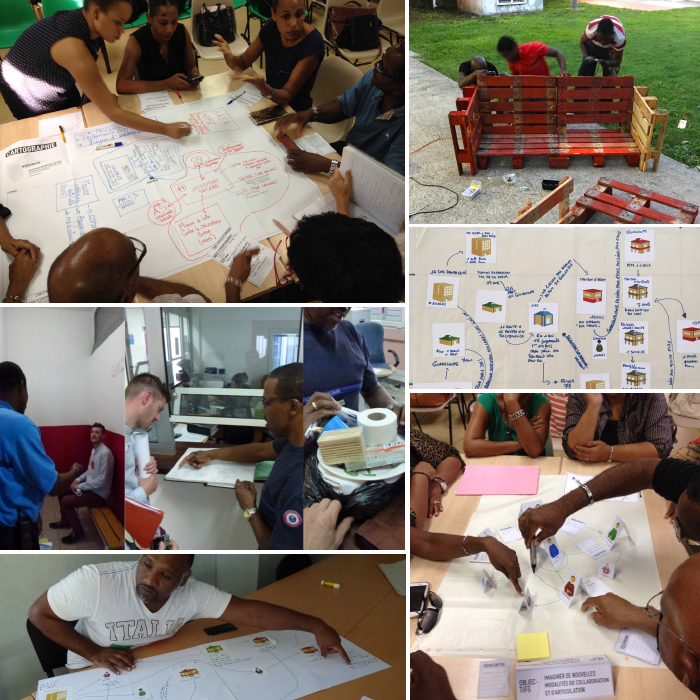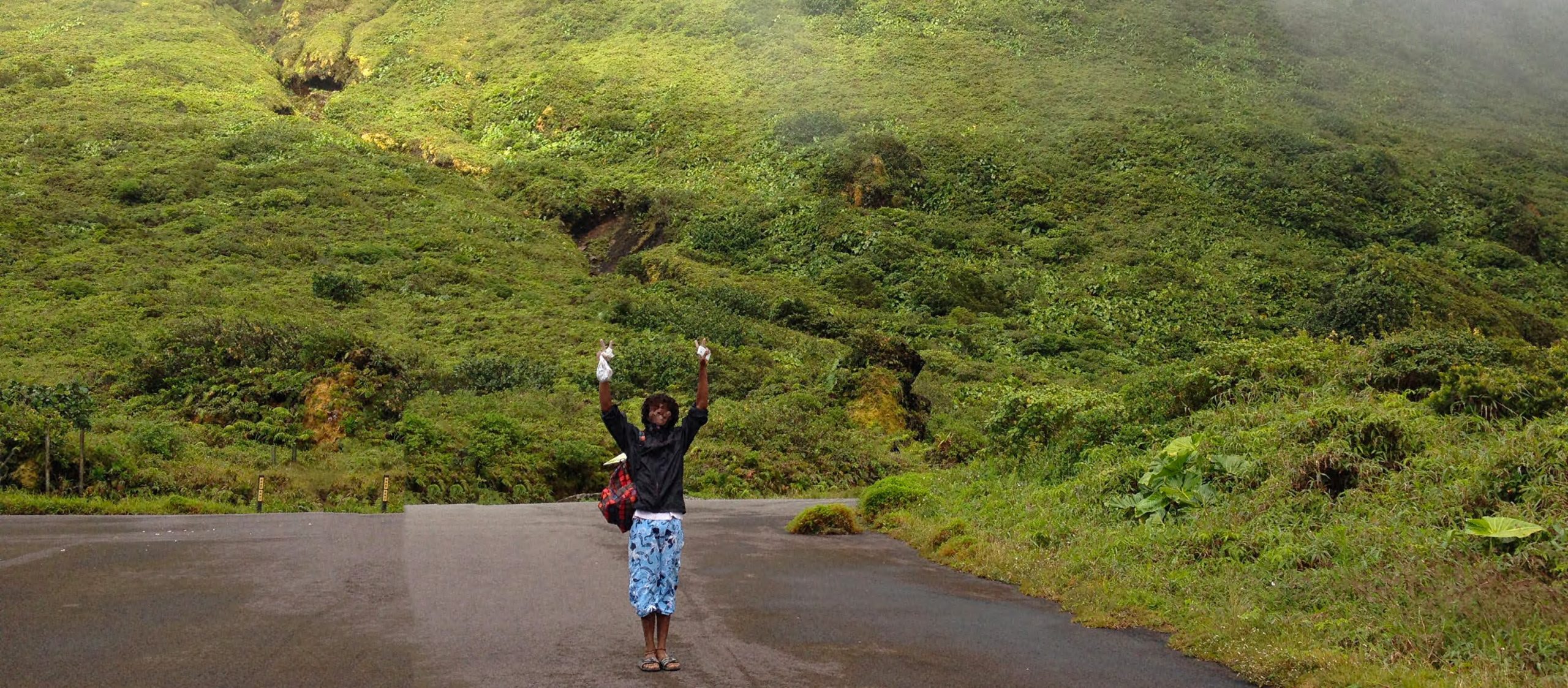 Participatory action research for the staff intervening with minors entrusted by a court decision both in the public sector and the voluntary sector and concerned with the care of violent minors, in Guadeloupe.
Participatory action research for the staff intervening with minors entrusted by a court decision both in the public sector and the voluntary sector and concerned with the care of violent minors, in Guadeloupe.Introduction
Guadeloupe is a diverse and complex territory in a difficult socio-economic situation. Social inequalities are numerous. High unemployment rates reduce future prospects, especially for the aspiring youth. The specificities of Caribbean culture (matrifocality, normative society, etc.), changes in the structure of the family (emergence of single parenthood), changes in modes of education (“hard” traditional education), etc. Must be taken into account in order to be able to understand more holistically the lives of minors in Guadeloupe, and in particular young people in situations of violent delinquency.
Faced with this increasingly multiple and increasingly violent delinquency, the professionals of educational action and the care of minors seem to reach a certain number of limits. These are reflected in the professional attitude towards impulsive violent behavior, in the difficulty of confronting it, in understanding it and proposing solutions, in resisting changes in professional practices and in changing conceptions of the environment. Educational action, the lack of synergies and the articulation and coherence of professionals among themselves, etc. However, Guadeloupe has a rich and diverse system of actors, very involved and eager to improve the education and care of minors, which is an ideal field for this action research.
Method
Action research is designed in a participatory, upstream, multidisciplinary and innovative way. Participatory because the very process of action research is eminently collaborative in order to ensure that the solutions that emerge are the result of a broad collective work between the stakeholders of the territory and the external actors. This is due to the fact that it is a matter of drawing inspiration from the innovative practices, the tricks, and the good ideas already put in place, often informally by the actors on the ground, to identify them, to make them go up, to value them and to instantiate them as possible solutions to be developed and consolidated. It is multidisciplinary, because it is a question of combining different skills and expertise, approaches, and ways of doing things, both in the proposed actors and in the plurality of other actors present on the territory. Innovative, finally, because from the tools and creative methods of design, we will imagine scenarios, co-construct solutions, prototype and crash-test them, adjust, modify, confront their usability in the terms of functionality in the field, with users and professionals.
This research-action has been the subject of constant work of analysis and documentation (booklets-report N ° 1 & N ° 2 preparatory phase, booklets-report N ° 1, N ° 2 & N ° 3 phase of Research-action) in order to observe the transformations that it can bring and the lessons that can be drawn from it to imagine new ways of doing for the PJJ itself, in particular in the interaction (animation, management) that it can have with its deconcentrated services, and in its role to play as an innovation function for juvenile justice.
Results
9 experiments were developed according to 3 axes of work:
Developing collaboration between actors
- Increase interinstitutional and interprofessional synergies: experimentation Mapping of the ecosystem of actors
- Leave a place for informal exchanges, give visibility to what is carried out in the territory: experimentation
- Stimulate peer-to-peer initiatives and mutual knowledge of professionals: experimentation Exchanges between professionals
Fostering participatory and educational postures
- Capitalize and disseminate professional experiences: experimentation The collection of inspiring stories of care
- Promote the inclusion of the educational dimension in the care of minors: experimentation Support for the reception of a minor in custody
- Replace (really) the user at the center by making him / her co-actor: experimentation Tell my story, the story of the young person’s life
Stimulating the evolution of professional practices
- Ensure the continuity of the courses to improve the quality of the exchange: experimentation File and follow-up of the young
- Develop a design adapted to the educational management: experimentation Co-build collective spaces
- Facilitating the taking into account of information technologies: experimentation Media game
Findings
The fieldwork and the interactions with the stakeholders of the territory have made it possible to bring to light a certain number of critical points which we list here as indicative and not exhaustive:
_ The importance of the involvement of young people as subjects able to co-produce part of the infrastructures and services they benefit from;
_ The fluidification of relations and exchanges between the multiple structures revolving around young people in the territory and their synergy for better prevention and management of delinquency;
_ The perpetuation of the mode of work of research-action in order to engage local institutions to constitute a form of “continuous laboratory” in perpetual search for innovations and experimentation of them in dialogue with the Research Pole of the PJJ.
*
DOWNLOAD:
Please find below the different documents produced during the residence:
Rapport de la mission d’Immersion en Guadeloupe #1
Rapport de la mission d’immersion en Guadeloupe #2
Récit de la semaine 1 de la recherche-action PJJ Guadeloupe
Retour sur la semaine 2 de la recherche-action PJJ Guadeloupe
